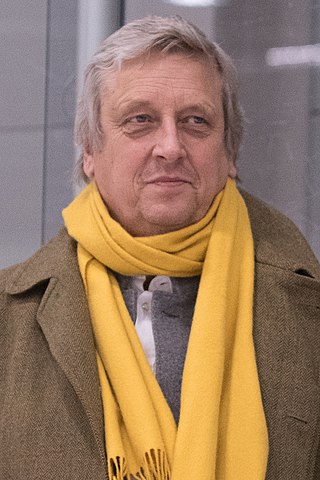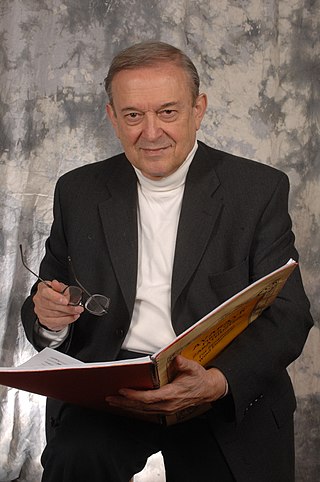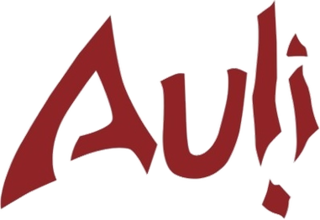
A musical ensemble, also known as a music group or musical group, is a group of people who perform instrumental and/or vocal music, with the ensemble typically known by a distinct name. Some music ensembles consist solely of instrumentalists, such as the jazz quartet or the orchestra. Other music ensembles consist solely of singers, such as choirs and doo-wop groups. In both popular music and classical music, there are ensembles in which both instrumentalists and singers perform, such as the rock band or the Baroque chamber group for basso continuo and one or more singers. In classical music, trios or quartets either blend the sounds of musical instrument families or group instruments from the same instrument family, such as string ensembles or wind ensembles. Some ensembles blend the sounds of a variety of instrument families, such as the orchestra, which uses a string section, brass instruments, woodwinds, and percussion instruments, or the concert band, which uses brass, woodwinds, and percussion. In jazz ensembles or combos, the instruments typically include wind instruments, one or two chordal "comping" instruments, a bass instrument, and a drummer or percussionist. Jazz ensembles may be solely instrumental, or they may consist of a group of instruments accompanying one or more singers. In rock and pop ensembles, usually called rock bands or pop bands, there are usually guitars and keyboards, one or more singers, and a rhythm section made up of a bass guitar and drum kit.

Jeremy Webster "Fred" Frith is an English multi-instrumentalist, composer, and improviser. Probably best known for his guitar work, Frith first came to attention as a founding member of the English avant-rock group Henry Cow. He was also a member of the groups Art Bears, Massacre, and Skeleton Crew. He has collaborated with a number of prominent musicians, including Robert Wyatt, Derek Bailey, the Residents, Lol Coxhill, John Zorn, Brian Eno, Mike Patton, Lars Hollmer, Bill Laswell, Iva Bittová, Jad Fair, Kramer, the ARTE Quartett, and Bob Ostertag. He has also composed several long works, including Traffic Continues and Freedom in Fragments. Frith produces most of his own music, and has also produced many albums by other musicians, including Curlew, the Muffins, Etron Fou Leloublan, and Orthotonics.

Satellites LV, formerly known as The Satellites in their early rock period (1996–1999), is a Latvian musical group formed in 1996 in Riga, Latvia. The core members of The Satellites are brothers Janis and Edgars Zilde. Other projects and groups related to Satellites LV include Kuba, Mofo, Raadio, Autobuss Debesis, Stāvi, the experimental solo album of Janis Zilde and Augusts IV, the solo EP by Edgars Zilde.

Apocalyptica is a Finnish symphonic metal band from Helsinki, formed in 1993. The band is currently composed of three classically trained cellists Eicca Toppinen, Paavo Lötjönen, and Perttu Kivilaakso. Originally a classical-style Metallica tribute band, the band eventually adopted a neoclassical metal style without the use of conventional guitars and bass. They have sold over four million albums to date.

Zigmars Liepiņš (born 14 October 1952 in Liepāja, Latvian SSR, USSR is a Latvian composer, keyboard player and the chairman of the board for the Latvian National Opera. Liepiņš has written songs for choirs, solo artists, orchestras, films, theatres, and operas.

Intars Busulis is a Latvian singer, trombonist and musician in a Musical Union Intars Busulis & Abonementa orķestris. Wider recognition came from participation in a band called "Caffe", in 2001. Also, he has been the winner of several music competitions, as well as, he represented Latvia in Eurovision Song Contest 2009.

Loris Ohannes Chobanian was an American-Armenian composer of classical music, conductor, and guitar and lute teacher and performer. He served as Professor of Composition as well as Composer-in-Residence at Baldwin-Wallace College Conservatory.

Svante Henryson is a composer, cellist, bass guitarist and double bassist, active within jazz, classical music, and hard rock.

Jānis Mediņš was a Latvian composer.

Singalongs is the second studio album released by Latvian instrumental cello rock trio Melo-M. The album is produced by trio member Kārlis Auzāns and recorded 2007 at Chellout Studios in Riga, Latvia. The album consists of 11 cover version tracks.

Gerhard Präsent is an Austrian composer, conductor and academic teacher.

Laura Bicāne is a Latvian singer and songwriter.
Latvia participated in the Eurovision Song Contest 2013 with the song "Here We Go" written by Ralfs Eilands and Arturas Burke. The song was performed by the group PeR. The Latvian broadcaster Latvijas Televīzija (LTV) organised the national final Dziesma 2013 in order to select the Latvian entry for the 2013 contest in Malmö, Sweden. Twenty-four songs were selected to compete in the national final, which consisted of three shows: two semi-finals and a final. In the semi-finals on 8 and 9 February 2013, six entries were selected to advance from each show. Twelve songs ultimately qualified to compete in the final on 16 February 2013 where two rounds of voting by a public televote and a nine-member jury panel selected "Here We Go" performed by PeR as the winner.
Michael Kibbe is an American contemporary classical music composer born in San Diego, California. He has composed over 240 concert works and created numerous arrangements. His writing covers many musical styles, encompassing tonal, modal and non-diatonic languages. His style often incorporates modern structures but is still accessible to the popular classical listener. Some of his works come right of the Romantic Era yet his style in some writings has been compared to Prokofiev. There are influences of American composer Gershwin in the Serenade Number 2 for two clarinets that seem at once blues, jazz and classical. His music can often reflect themes that bring to mind different cultures.
Phantasy Quartet, Op. 2, is the common name of a piece of chamber music by Benjamin Britten, a quartet for oboe and string trio composed in 1932. In the composer's catalogue, it is given as Phantasy, subtitled: Quartet in one movement for oboe, violin, viola, violoncello. It was first performed in August 1933 as a BBC broadcast.

DAGAMBA is a Latvian band formed in 2011. The group consists of five members: cellist Valters Pūce, cellist Antons Trocjuks, pianist Dainis Tenis, double bass player Alise Broka and drummer Artūrs Jermaks. Throughout DAGAMBA's existence, they have released six albums. The group has performed in Latvia, USA, Ukraine, Lithuania, China, Poland, Italy, Russia, Australia, Estonia, Turkey, United Kingdom and other countries. The most recent album that they have released is called "Bach Against the Machine".
Igor Krivokapič is a Slovenian composer, retired tubist and instrument inventor.

Auļi is a Latvian folk/world music band formed in 2003. The band consists of 6 bagpipers, 3 drummers and 1 electric cello player. The band also uses the Jew's harp and the shawm, an ancestor of the oboe, in their music.

Jānis Šipkēvics is a Latvian musician – singer, multi-instrumentalist, composer, lyricist, and producer. He is a member of the group Instrumenti, the founder of the vocal group Cosmos and musical projects Nepariet and Dora. His solo project is known as Shipsea.















